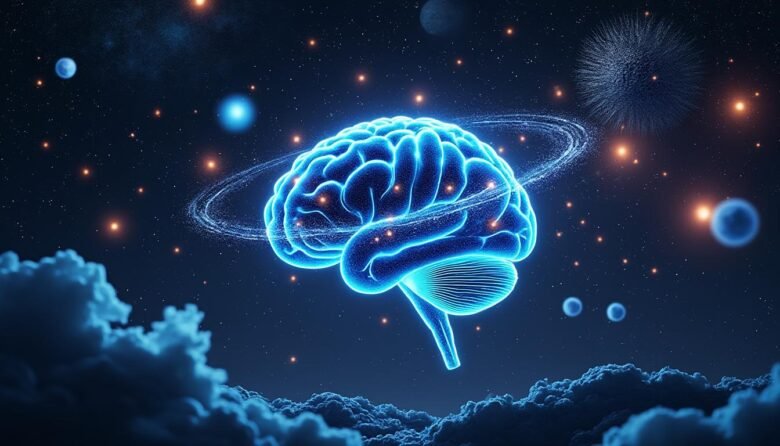En bref
- David Deutsch is a British physicist and a foundational figure in quantum computation, best known for proposing a universal quantum computer and for advancing the many-worlds interpretation of quantum mechanics.
- His work bridges physics, computation, and philosophy, shaping how we understand explanations, knowledge, and progress in the 21st century.
- Key publications and discussions appear across leading outlets and presses, including Nature, Quanta Magazine, Scientific American, and major publishers such as Penguin Books, Cambridge University Press, and Oxford University Press.
- Two foundational ideas frame his influence: the universality of computation in the quantum realm and the role of explanatory knowledge in driving human progress.
- By 2025, Deutsch’s concepts continue to influence AI, quantum information science, and epistemology, with ongoing dialogue in venues ranging from MIT Press and Wiley to academic hubs at Oxford and beyond.
Exploring the Mind of David Deutsch: A Journey Through Quantum Physics and Computational Theory examines how a physicist’s intellect spans the concrete and the abstract—how a single algorithm can herald a new computational paradigm, how a philosophical stance can illuminate scientific explanation, and how a theory of universality anchors both physics and computation. This article traverses five interlinked terrains: the birth and impact of the Deutsch algorithm and universal quantum computing; the philosophical backbone of the many-worlds interpretation as articulated in The Fabric of Reality; the central thesis of explanatory knowledge in The Beginning of Infinity; Deutsch’s role at the United Kingdom’s premier research university; and the enduring implications for AI, education, and public understanding in a globally connected era. Readers will encounter concrete examples, historical milestones, and contemporary debates that keep the conversation about computation, reality, and progress vibrant in 2025.
David Deutsch and the Quantum Computing Revolution: From the Deutsch Algorithm to Universal Quantum Devices
David Deutsch’s voice in the early days of quantum computation mapped a trajectory from a bold theoretical concept to a practical, if still emerging, engineering discipline. The pivotal moment is often traced to his 1985 landmark paper introducing a model of a universal quantum computer. This idea did not merely propose a faster calculator; it posited a machine capable of simulating any physical process with quantum rules, thereby redefining what “computable” means in a physical universe governed by superposition and entanglement. The Deutsch algorithm—a thought experiment demonstrating quantum speedups for specific tasks—heralded a shift in computational theory that later culminated in the broader development of algorithms and error correction essential to real-world quantum devices. In the decades since, the field has evolved through a succession of conceptual breakthroughs and experimental milestones, from control of qubits in superconducting circuits to the demonstration of small-scale quantum advantage in various platforms. This evolution has not been linear; it has required a sustained, interdisciplinary effort that integrates physics, computer science, and information theory. Deutsch’s insistence on universality means that quantum computers are not niche curiosities but foundational instruments capable of addressing a wide class of problems that classical machines cannot efficiently solve.
Section highlights:
- The universal quantum computer concept as a theoretical endpoint with broad implications for computation, physics, and information processing.
- The Deutsch algorithm and its role in demonstrating the potential advantages of quantum computation over classical approaches.
- The integration of theory and experiment as a pathway to translating abstract ideas into scalable technologies.
- Influence on contemporary discourse through outlets such as Nature, Quanta Magazine, and Scientific American, and through scholarly presses like Oxford University Press and MIT Press.
| Contribution | Core Idea | Current Relevance (2025) |
|---|---|---|
| Deutsch algorithm (1985) | Exposes a quantum speedup for a simple problem, illustrating quantum parallelism. | Foundational teaching example in quantum information; cited across courses and textbooks published by Cambridge University Press and Wiley. |
| Universal quantum computer concept | A machine capable of efficiently simulating any physical process within quantum mechanics. | Remains a guiding objective for hardware teams and theoretical researchers; widely discussed in Nature and Scientific American. |
| Interdisciplinary synthesis | Linking computation, physics, and information to broaden scientific explanation. | Influences research agendas at Oxford and international laboratories; informs education initiatives via Oxford University Press resources. |
Beyond the mathematics, Deutsch’s work invites us to consider why computation matters in the physical world. If a quantum computer can perform tasks underpinned by quantum dynamics that are infeasible for classical machines, then computation becomes a lens through which we understand physical law itself. This perspective has broadened the narrative around how society approaches problem-solving, risk assessment, and policy planning in a world increasingly shaped by advanced technology. Institutions like Penguin Books and major presses have disseminated these ideas to a broad audience, ensuring that the debate about quantum advantage remains accessible while retaining its technical depth. As research continues into error correction, fault tolerance, and scalable qubit architectures, Deutsch’s early insistence on universality provides a compass for navigating the practical challenges of turning theory into technology.
Subsection: Deutsch’s Theoretical Foundations and Practical Implications
Deutsch’s theoretical foundation—how a universal quantum computer could, in principle, simulate any physical process with polynomial resources—has spurred a cascade of research topics. From Grover’s and Shor’s algorithms to modern error-correcting codes, the notion of universality remains a touchstone for evaluating new ideas. In classrooms and laboratories, students encounter the Deutsch algorithm not merely as a curiosity but as a paradigm that crystallizes the power and limits of quantum computation. The practical implications extend to cryptography, materials science, and optimization problems where quantum speedups are expected to translate into real-world advantages in 2025. Major journals and conferences regularly reference Deutsch’s work when outlining the historical arc and future trajectory of quantum computing, underscoring his role as a progenitor of a field that continues to redefine computational horizons.
Why this matters for future generations
As AI and quantum technologies mature, understanding the universality of computation helps policymakers, educators, and developers anticipate challenges and opportunities. Deutsch’s framework invites rigorous reasoning about what can be known, what can be explained, and what kinds of explanations enable progress. The cross-pollination with philosophers and historians of science—echoed in reviews and essays published by Nature and Scientific American—demonstrates the enduring value of thinking about computation as a fundamental physical process rather than a mere tool.
Key Takeaways
- Quantum universality anchors the dream of a machine that can emulate any physical system.
- Quantum speedups are not just about faster arithmetic; they reveal new ways of processing information.
- Education and public understanding benefit from integrating physics, computation, and philosophy.
| Key Idea | Illustrative Example | 2025 Context |
|---|---|---|
| Universality | Universal quantum computer | Foundational for research programs at Oxford and MIT-affiliated institutes. |
| Quantum speedup | Deutsch algorithm as a conceptual beacon | Educational materials widely used across major publishers. |

The Fabric of Reality, Many Worlds, and the Philosophy of Science in Deutsch’s Work
David Deutsch’s literary and scientific corpus weaves together physics, computation, evolution, and epistemology, culminating in a distinctive philosophy that treats knowledge as the central driver of progress. In The Fabric of Reality, he threads four strands—quantum physics, evolution, computation, and Popperian epistemology—into a unified account of reality. The central claim is that our intelligible picture of the world grows through good explanations that survive rigorous testing and cross-disciplinary validation. This approach to science places explanatory depth at the heart of understanding, arguing that progress emerges not merely from accumulating data but from the ability to craft tests, predictions, and models with broad explanatory reach. Deutsch’s stance is deeply informed by the Karl Popper tradition, emphasizing falsifiability, critical discussion, and the disciplined rejection of untenable theories. The result is a philosophy that sees science as a generative enterprise—one that constructively expands what humans can know and why it matters. In 2025, this perspective remains influential among scholars who seek to connect theoretical physics with practical knowledge and to illuminate how broad, well-founded explanations can guide technology, policy, and education.
Section highlights:
- The four strands provide a framework for integrating disparate disciplines into a coherent worldview.
- The many-worlds interpretation serves as a radical, yet fruitful, narrative for understanding quantum phenomena and the nature of reality.
- The emphasis on explanations ties philosophical clarity to empirical progress and societal advancement.
| Dimension | Key Insight | Impact |
|---|---|---|
| Quantum physics | Many-worlds interpretation as a dispositional account of measurements | Guides discussions in Physics and Philosophy of Science, with coverage in Nature and Quanta Magazine. |
| Evolution | Emergent complexity and adaptive knowledge | Affects thinking about computation and optimization in AI research. |
| Computation | Universality and the role of information | Influences computational theory and practical algorithm design. |
| Epistemology | Falsifiability and robust explanations | Inform policy and education strategies by prioritizing testable theories. |
Deutsch’s synthesis has resonances in contemporary science writing and pedagogy. Articles and reviews in Nature and Penguin Books editions have helped distill the core themes of The Fabric of Reality for broader audiences, while academic discussions in Quanta Magazine and Scientific American track ongoing debates about the interpretation of quantum mechanics. The philosophical stance is not mere background noise; it shapes how researchers frame experiments, interpret results, and propose new lines of inquiry. As we look toward 2025, the articulation of a unified worldview around four strands continues to inspire students, educators, and researchers to seek explanations with both depth and breadth across disciplines.
Subsection: The Many-Worlds Perspective and Intellectual Courage
The many-worlds interpretation—advocated by Deutsch as a natural extension of the unitary evolution in quantum theory—offers a bold framework for understanding measurement, probability, and reality’s texture. It challenges conventional intuition while delivering a coherent mathematical narrative. Critics often focus on interpretational elegance, yet the practical payoff lies in how this perspective informs experimentation and theory building. Deutsch’s advocacy for MWI invites researchers to design tests that illuminate branch structure, decoherence, and information flow. In education, this translates into accessible explanations that connect abstract mathematics to tangible phenomena, a goal echoed in outlets such as Nature and New Scientist as they report on quantum foundations and experimental demonstrations.
| Aspect | Explanation | Educational Value |
|---|---|---|
| Measurement problem | MWI treats measurement as a branch creation without wavefunction collapse | Encourages deeper discussions of quantum theory in classrooms |
| Decoherence | Environment-induced selection reduces interference between branches | Provides a practical picture for experiments and simulations |
Explanatory Knowledge and The Beginning of Infinity: A Philosophy of Progress
At the heart of Deutsch’s The Beginning of Infinity lies a bold thesis: human progress rests on the growth of explanatory knowledge—explanations that are hard to vary while remaining testable and comprehensive. This idea reframes questions about science, technology, and society as a search for robust theories rather than episodic discoveries. Deutsch argues that we should cultivate explanations that are not only predictive but also resilient to future challenges, thereby extending the range of problems humanity can solve. The book’s central message is optimistic and provocative: the potential for understanding is boundless when we pursue universal explanations capable of spanning domains—from physics to ethics to culture. In 2025, this perspective informs debates about AI alignment, scientific communication, and science education, encouraging policy-makers, researchers, and students to value depth, coherence, and transferable understanding over piecemeal, narrow results.
Section highlights:
- Explanations vs. data accumulation: the growth driver for knowledge is the quality and generality of explanations.
- Interdisciplinary rationalism: breakthroughs occur at the intersection of disciplines when a powerful explanation emerges.
- Forward-looking optimism: a well-founded belief in human potential to solve increasingly complex problems.
| Principle | Explanation | Impact on Science and Society |
|---|---|---|
| Explanatory power | Explanations should be hard to vary without breaking the theory | Guides scientific methodology and curriculum design |
| Interdisciplinarity | Cross-domain explanations unify disparate phenomena | Drives innovation in AI, physics, and beyond |
| Optimistic realism | Belief in progress grounded in robust theories | Encourages public engagement with science and policy foresight |
Deutsch’s later work has been discussed and analyzed in major venues and presses, including Oxford University Press and Cambridge University Press, where technology and philosophy intersect. The ongoing dialogue around It from Qubit and other explorations of information and physics demonstrates how explanation-based thinking continues to shape research agendas. Journalists and scholars alike, writing for outlets like Nature, Quanta Magazine, and Scientific American, repeatedly highlight how the elegance of a broad, testable explanation can translate into concrete progress. By 2025, the idea that robust explanations unlock new capabilities remains a guiding theme for education, research funding, and public discourse about science and technology.
Subsection: It from Qubit and the Future of Information
Deutsch’s more recent explorations, including the It from Qubit program and related discussions, push the boundary of how information, physics, and computation interlock. The central claim is that information is a physical entity with real causal power in shaping the fabric of reality. This view informs ongoing discussions about quantum information theory, computation, and the ethics of powerful technologies. Readers will encounter these ideas in reviews and essays published by a spectrum of outlets, spanning New Scientist and Penguin Books, which help translate these technical insights into accessible narratives for a broad audience in 2025.
Practical implications for education and policy
Education systems benefit from focusing on robust explanations, not just memorization. Deutsch argues for curricula that emphasize critical thinking, falsifiability, and the development of explanatory models that students can apply across contexts. This approach aligns with modern pedagogical movements and is reflected in resource-rich programs supported by publishers and institutions engaged in public science communication, including Oxford University Press and Wiley. In policy circles, the emphasis on explanatory depth can guide funding decisions, risk assessment, and the design of science outreach that helps society navigate rapidly advancing technologies while maintaining ethical commitments.
Table summary:
| Aspect | Core Idea | Educational/Policy Implications |
|---|---|---|
| Name of concept | Explanatory knowledge | Prioritize deep explanations in science education |
| It from Qubit | Information as a physical primitive | Informs research programs in quantum information and physics |
Oxford, Computation, and the Cross-Disciplinary Vision: Deutsch’s Foundational Roles
Deutsch’s association with Oxford University has placed him at the intersection of theory and education, where he helped articulate the foundational ideas that underpin quantum computation and its philosophical implications. The university environment—renowned for rigorous inquiry and cross-disciplinary collaboration—has provided a fertile ground for Deutsch’s most influential lines of thought. His work continued to influence curricular design, research funding priorities, and public lectures that connect abstract theory to real-world applications. At the heart of his approach is the conviction that computation, as a universal language, can illuminate the behavior of physical systems as diverse as molecular dynamics, cognitive processes, and the evolution of ideas themselves. This perspective has fostered collaborations with researchers across physics, computer science, and philosophy, reinforcing the view that progress emerges from the productive tension between precise mathematics and open-ended inquiry. By 2025, Deutsch’s collaboration network and intellectual footprint extend beyond the academy into public discourse, shaping how students and scholars imagine the future of computation and science in a connected world.
Section highlights:
- Oxford’s role as a platform for cross-disciplinary exchange in quantum information and epistemology.
- The translation of abstract theory into educational resources and public talks.
- The ongoing relevance of Deutsch’s ideas in contemporary AI and quantum theory research agendas.
| Aspect | Contribution | Relevance to 2025 |
|---|---|---|
| Education | Curricular innovations tying quantum concepts to computation theory | Used in courses and textbooks published by Oxford University Press |
| Research | Foundational theories in quantum computation and information | Influences grant programs and collaborations across universities |
Deutsch’s public communication, interviews, and essays—featured in Nature, Quanta Magazine, and Scientific American—help bridge the gap between high-level theory and accessible understanding. The cross-disciplinary character of his work makes it a natural fit for outlets that publish both technical content and explanatory pieces. The synergy between Oxford’s academic environment and Deutsch’s intellectual style fosters an enduring tradition of rigorous yet imaginative inquiry, encouraging new generations to approach problems with both skepticism and optimism. In 2025, this cross-pollination continues to fuel debates about how best to teach complex ideas and how to prepare students for a future where computation, physics, and philosophy converge.
Subsection: It from Qubit and Educational Innovation
Deutsch’s later articulations—encapsulated in It from Qubit and related works—emphasize a unifying principle: information has physical significance, which informs both theory and practice. This stance invites learners to see computation not only as a technique but as a fundamental component of physical law. Educational materials, including contributions from publishers like Penguin Books and Wiley, often frame these ideas as a narrative arc linking quantum theory to everyday technology. By presenting a coherent story about how information is woven into the fabric of reality, Deutsch provides students with mental models that facilitate interdisciplinary thinking and curiosity-driven inquiry.
Practical perspectives for research and policy
Policy decisions about funding quantum technologies and AI research should consider the value of universal principles that cross domains. Deutsch’s framework suggests that supporting foundational research—where explanations are thoroughly tested and broadly applicable—can yield transformative outcomes across engineering, medicine, and environmental science. This holistic view aligns with contemporary science communication strategies, which emphasize context, coherence, and public engagement. In 2025, researchers, educators, and policymakers increasingly rely on multi-format dissemination—books, journals, online platforms, and public talks—to share the core ideas that Deutsch helped popularize with clarity and rigor.
| Policy/Practice | Rationale | Expected Outcome |
|---|---|---|
| Research funding | Support foundational theory with cross-disciplinary relevance | Accelerated breakthroughs in quantum information and AI |
| Education policy | Emphasize explanatory depth and critical thinking | Stronger preparation for complex problem-solving in STEM |

Deutsch’s Legacy in 2025: Implications for AI, Quantum Theory, and Public Understanding
As we look toward 2025, Deutsch’s contributions continue to echo across scientific, educational, and cultural landscapes. The idea of a universal quantum computer informs ongoing hardware development, error correction strategies, and algorithm design. It reshapes how researchers think about the limits of computation, the practical viability of quantum devices, and the potential to solve traditionally intractable problems. In parallel, the many-worlds interpretation remains a provocative, productive lens for interpreting quantum phenomena, shaping dialogues that range from theoretical physics to science communication. Deutsch’s emphasis on explanatory knowledge as the engine of progress has become a touchstone for educators and policymakers alike, encouraging a mode of thinking that seeks robust, generalizable explanations rather than narrow, one-off results. This mindset helps bridge the gap between abstract theory and real-world impact, particularly in the development of AI systems that can reason, adapt, and explain their decisions in ways that are meaningful to humans.
Section highlights:
- The ongoing relevance of foundational theory to hardware and software in AI and quantum computing.
- Public understanding of science enriched by accessible narratives and rigorous explanations.
- Educational initiatives that foreground critical thinking, epistemology, and cross-disciplinary literacy.
| Area | Deutsch’s Influence | 2025 Outlook |
|---|---|---|
| Quantum computing | Foundational theory and universality | Further hardware breakthroughs and scalable architectures |
| Philosophy of science | Emphasis on explanatory power and falsifiability | Educational reform and science communication strategies |
| AI and society | Bridges computation and knowledge in a philosophically grounded way | Policy and ethics debates informed by robust explanations |
Scholarly and popular outlets alike—ranging from Nature and Quanta Magazine to New Scientist—continue to explore Deutsch’s ideas, often highlighting their relevance to current technology trends and ethical questions. Publisher ecosystems, including Oxford University Press, MIT Press, Penguin Books, and Cambridge University Press, provide a steady stream of material that helps lay audiences and specialists alike engage with his vision. As we navigate the complexities of an increasingly automated world, the overarching theme remains: progress is sustained by explanations that humans can understand, test, and apply across domains—an idea that has become a moral and intellectual compass for contemporary science policy, education, and innovation.
FAQ
Who is David Deutsch and why is he significant in quantum computing?
David Deutsch is a British physicist known for proposing the concept of a universal quantum computer and for advocating the many-worlds interpretation. His work laid foundational ideas for quantum computation and the philosophy of science, influencing both theory and public understanding.
What is the Deutsch algorithm and why does it matter?
The Deutsch algorithm demonstrates a quantum speedup for a simple computational problem, illustrating how quantum systems can process information in ways unattainable by classical means. It helped establish the idea of quantum computation as a universal framework.
How does Deutsch connect computation to knowledge and progress?
Deutsch argues that explanatory knowledge—robust, testable explanations that span domains—drives scientific and technological progress. This perspective links physics, computation, and epistemology in a unified vision.
Where can I learn more about Deutsch’s ideas?
Key sources include papers and books associated with Oxford University Press, MIT Press, Penguin Books, Cambridge University Press, and major outlets like Nature, Quanta Magazine, Scientific American, and New Scientist.




